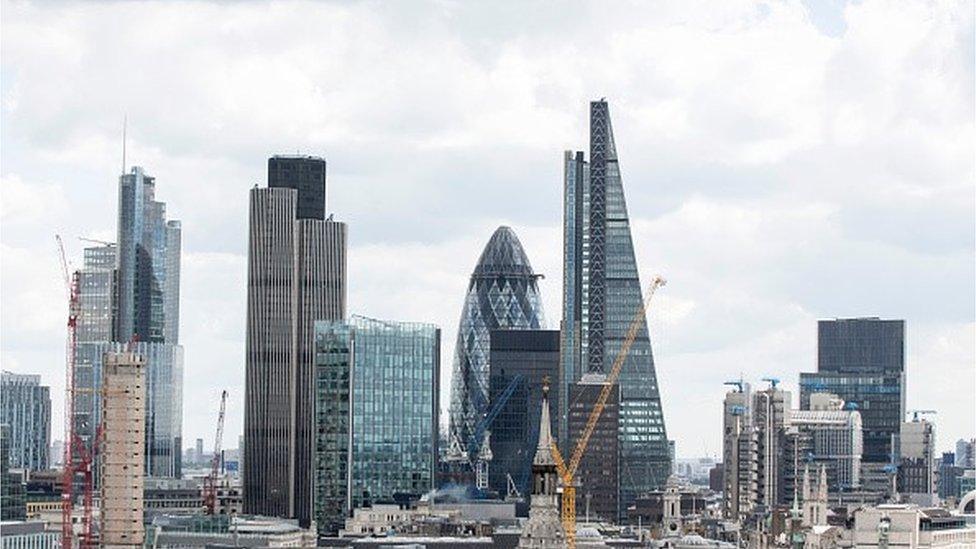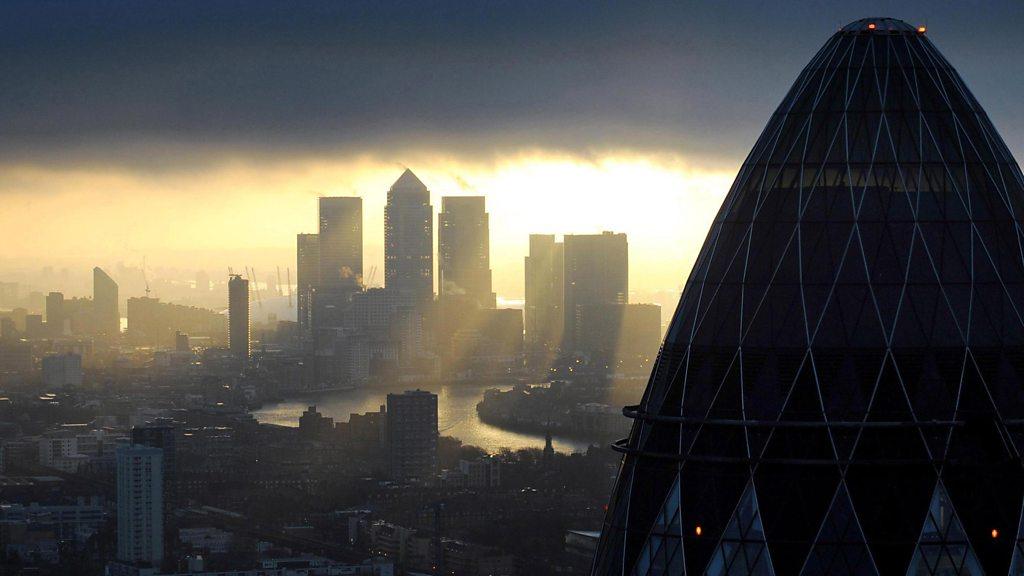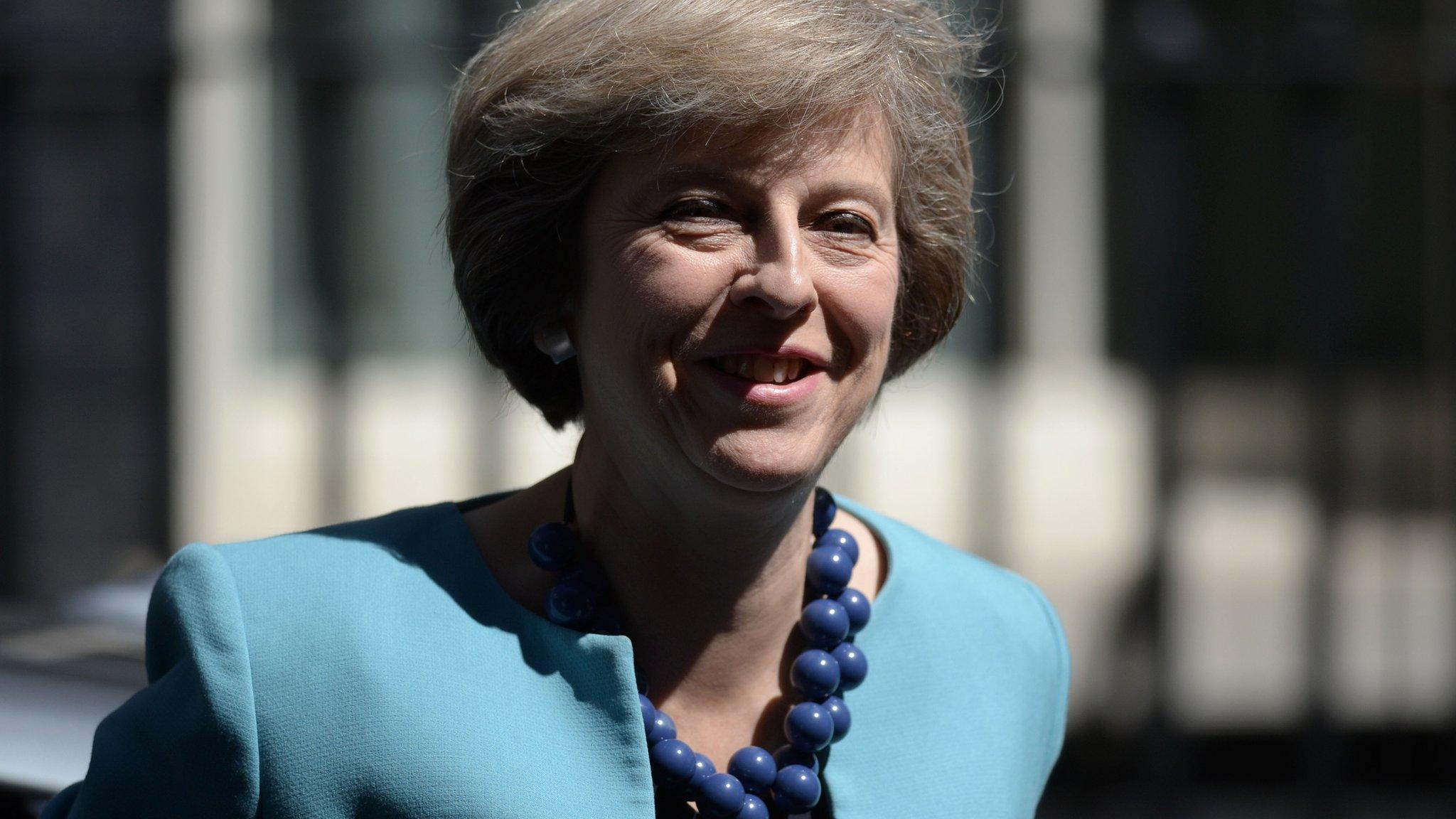FTSE 100 bosses earn average of £5.5m a year, report says
- Published

The bosses of Britain's biggest companies now take home an average of £5.5m per year, a report has said.
The High Pay Centre says chief executives of firms on London's FTSE 100 index saw their mean average income rise by 10% in 2015.
Median pay rose to just under £4m, 144 times the median wage of the average Briton, which is currently £27,600.
The findings come just weeks after the new prime minister proposed a crackdown on excessive boardroom salaries.
Theresa May said shareholder votes on executive pay should be binding.
In July, she said there was an "irrational, unhealthy and growing gap" between what leading companies pay their workers and what they pay their bosses.
Board members may be "in the dark" about CEO pay deals, says Stefan Stern of the High Pay Centre
Stefan Stern, director of the High Pay Centre, said the think tank's latest report showed there was "no end yet in sight" to the rise of FTSE 100 pay packages, adding that he was delighted by Number 10's interest in reforming the remuneration system.
He said: "In particular, we support two of [the prime minister's] main proposals: that companies should be obliged to publish the ratio between the pay of the chief executive and the average worker in the business; and that the voice of the ordinary employee must be heard in discussions over executive pay."
On average, most employees received a pay rise of about 2% last year, Mr Stern told the BBC's Today programme.
He added pay increases for most people had been "pretty uninspiring for the last decade".
Rebellions
Increasingly high levels of boardroom pay have prompted a number of shareholder revolts in the past few months, but currently these votes have no legal authority and can be ignored by the company boards.
In April, BP investors rejected a pay package of almost £14m for chief executive Bob Dudley, at the oil company's annual general meeting.
Smith & Nephew and Reckitt Benckiser faced similar, albeit smaller, rebellions.
The incidents led the Executive Remuneration Working Group, which includes some of Britain's most high-profile bosses, to declare that executive pay in the UK is "not fit for purpose" and needs reform.
They said there was "widespread scepticism and loss of public confidence" in big businesses as a result of the levels of pay.
The High Pay Centre's report found that increases in salaries were bigger for a select few chief executives at the largest companies.
The head of the advertising group WPP, Sir Martin Sorrell collected the highest amount, a total of more than £70m.
Sir Martin has defended his pay package in the past, saying his salary is based on the performance of WPP, the world's largest advertising group.
Other high earners were Berkeley Group's Tony Pidgley, and Reckitt Benckiser's Rakesh Kapoor, both of whom took home more than £23m last year.
There were no women among the top 10 highest earners.
On average, chief executives were paid 129 times the earnings of their own employees.
- Published8 August 2016

- Published8 August 2016

- Published27 July 2016

- Published20 July 2016

- Published21 April 2016
